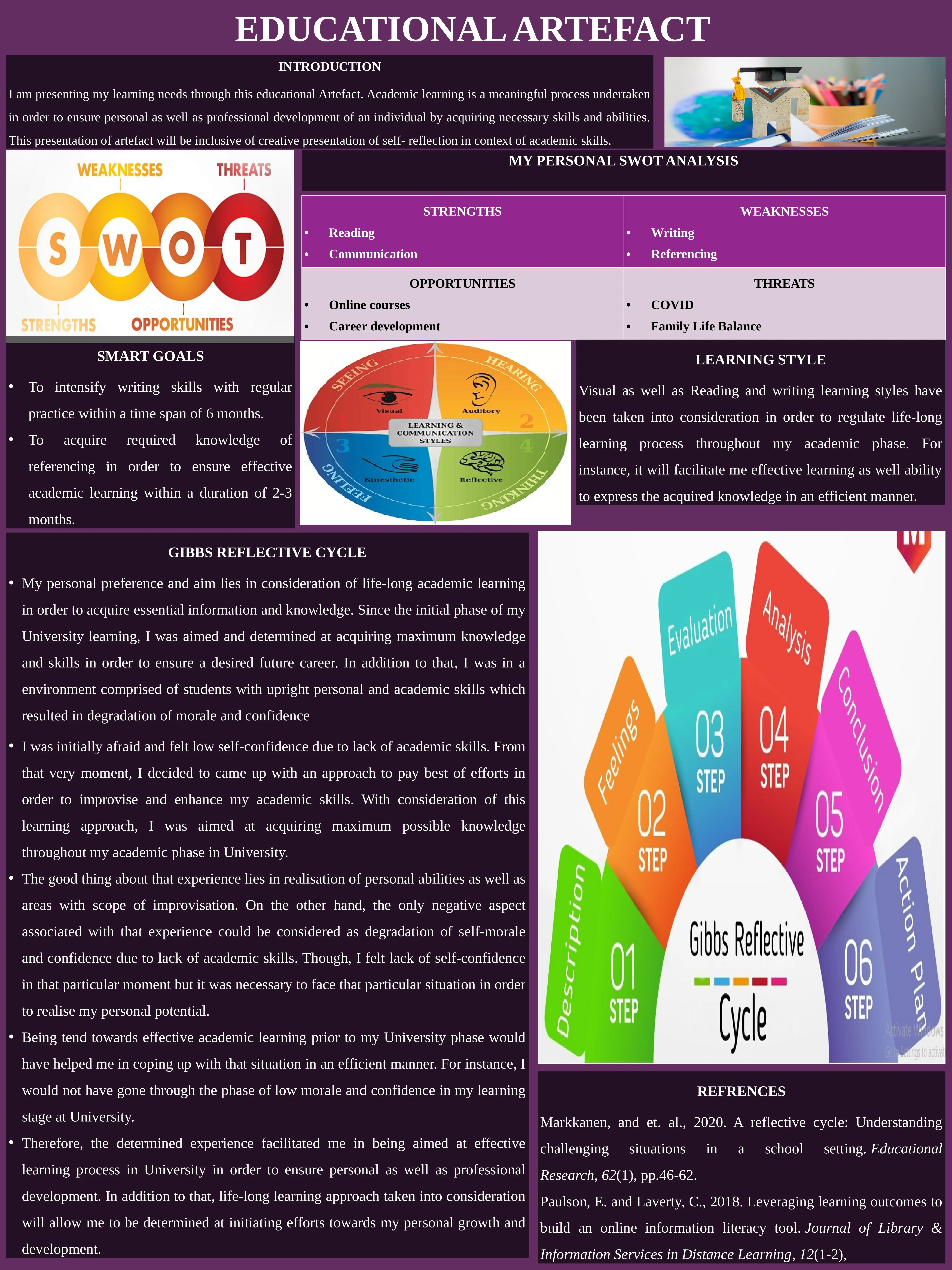Academic Skills Self-Reflection: An Educational Artefact Analysis
VerifiedAdded on 2023/06/12
|1
|576
|128
Essay
AI Summary
This essay introduces an educational artefact that reflects on the author's academic learning needs and personal development. It includes a SWOT analysis identifying strengths, weaknesses, opportunities, and threats related to academic skills such as reading, writing, communication, and referencing. The author sets SMART goals to improve writing skills and referencing abilities, considering visual, reading, and writing learning styles. The essay also incorporates Gibbs' Reflective Cycle to analyze past experiences, focusing on a situation where the author initially felt low self-confidence due to a lack of academic skills. The reflection highlights the importance of lifelong learning and continuous personal growth, with references to relevant academic literature.





![[object Object]](/_next/static/media/star-bottom.7253800d.svg)